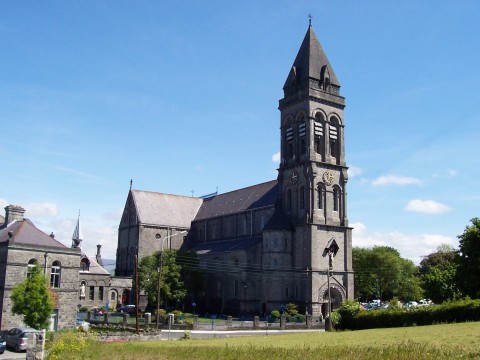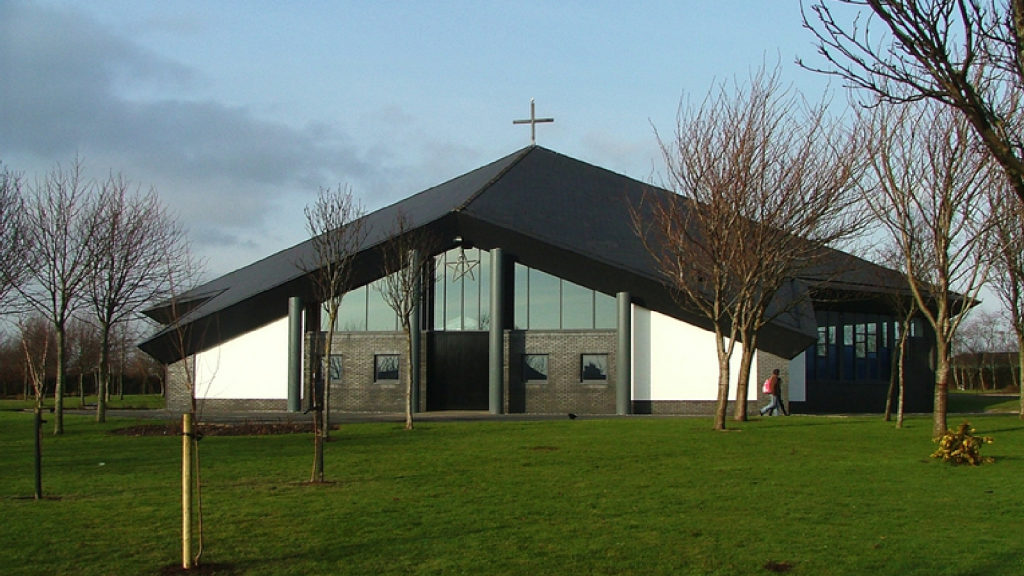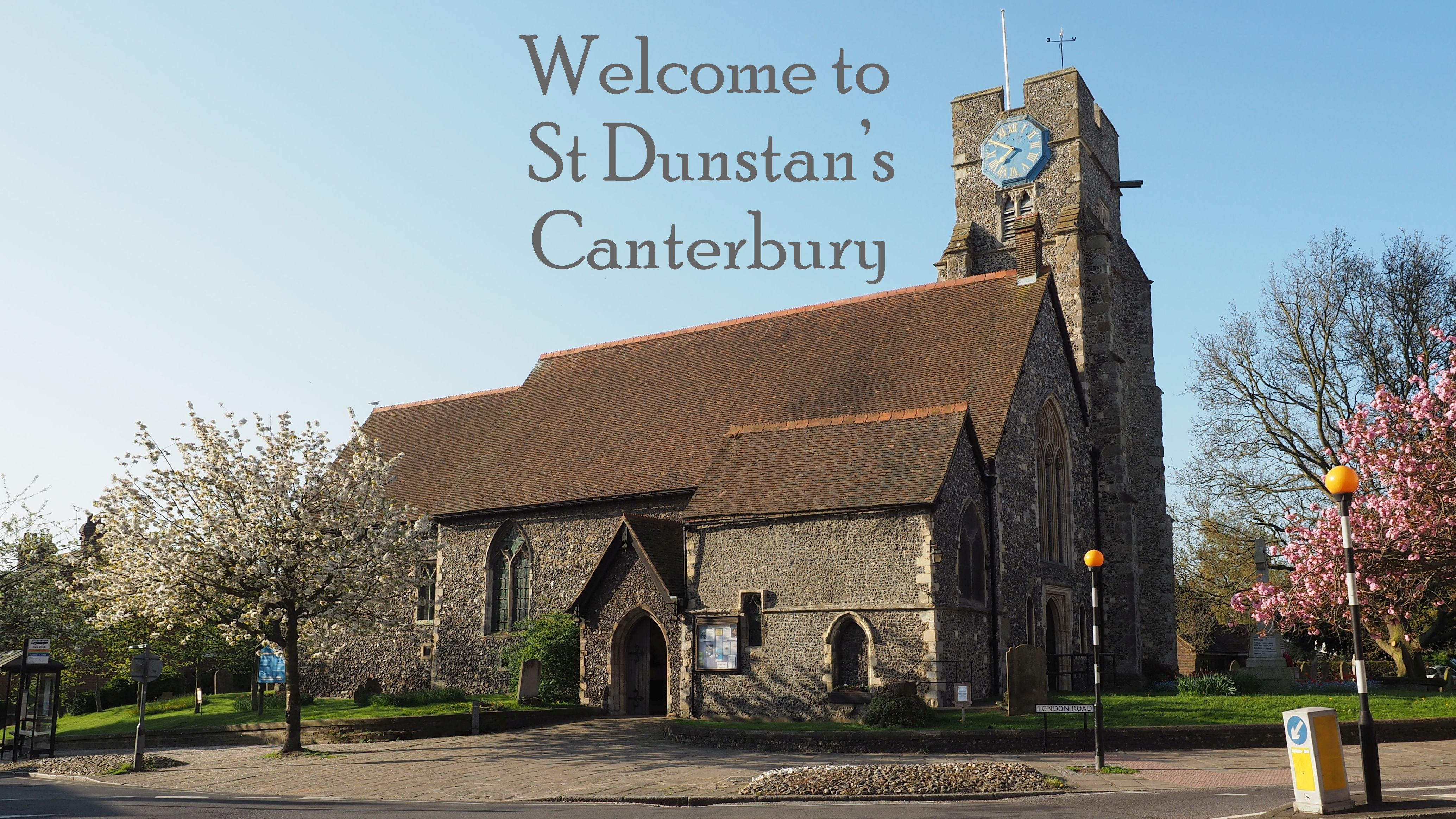Churches of the Day
Pictorial Thought for Today
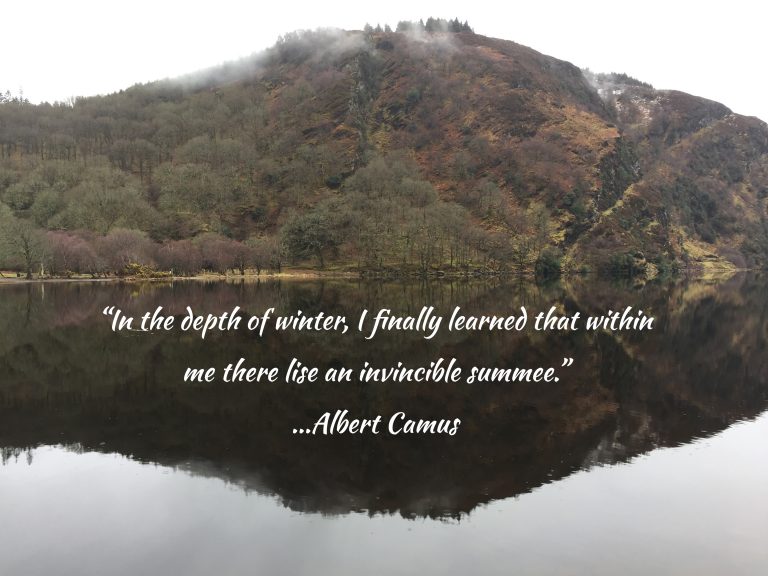
Dec 30 - St John-Francis Regis SJ (1597–1640)
Patrick Duffy traces out his life and the connection between the two saints mentioned above.
Early Life
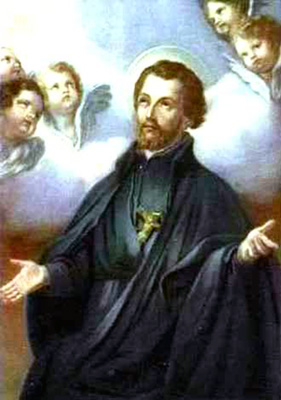 John-Francis Regis was born into a family of some wealth in the diocese of Narbonne in the Languedoc region of southern France. He was educated by the Jesuits at Beziers. At the age of eighteen, he considered becoming a Buddhist, but at nineteen he entered the Jesuit novitiate at Toulouse on 8 December 1616.
John-Francis Regis was born into a family of some wealth in the diocese of Narbonne in the Languedoc region of southern France. He was educated by the Jesuits at Beziers. At the age of eighteen, he considered becoming a Buddhist, but at nineteen he entered the Jesuit novitiate at Toulouse on 8 December 1616.Studies in the Jesuits
After finishing his course in rhetoric at Cahors, John-Francis was sent to teach grammar at several colleges: Billom (1619-1622), Puy-en-Velay (1625-1627), and Auch (1627-1628). While he was teaching, he also pursued his studies in philosophy at the scholasticate at Tournon. He began his study of theology at Toulouse in 1628 and was ordained in 1631. During his time studying theology his room-mate became concerned he was spending much of his nights in prayer and approached his superior who said: "Don't disturb his devotions. If I'm not greatly mistaken, this man is a saint".
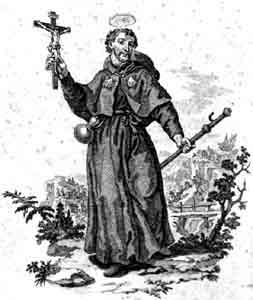 Montpellier: Itinerant Retreat-Giver
Montpellier: Itinerant Retreat-GiverThe rest of John-Francis's life was devoted to preaching missions in rural areas, part of the great effort to re-Christianise Europe after the Council of Trent.
His direct way of speaking and his manifest sincerity attracted people from every class of society. For the first two years he made the Jesuit College of Montpellier his centre. He visited prisons in the afternoon and set up a committee to help in this work. He also concerned himself with rescuing women from prostitution and set up girls so they could earn an income for themselves as lacemakers.
In the Auvergne (1633-40)
In 1633, the bishop of Viviers invited him to give missions throughout his diocese. From 1633-1640 he evangelised more than fifty districts in le Vivarais, le Forez, and le Velay where church structures had collapsed. He was able to speak to the people in their own dialect which won the people's confidence.
Longing to be a Missionary in Canada
John-Francis had a longing to go with his brother Jesuits to Canada to preach to the North American Indians there, but he remained in France all his life. Often in winter he suffered many hardships in the snow as he moved around over rugged mountains. He is described as spending the day preaching on top of a heap of snow and then hearing confessions through the night.
At Le Puy
John-Francis spent the last four
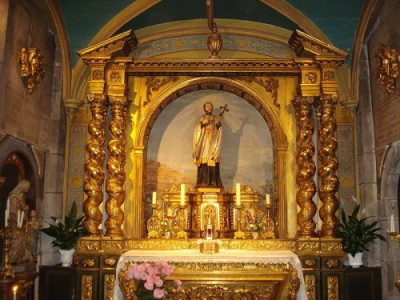 summers in Le Puy, the chief town of le Velay where thousands flocked to fill the church to overflowing.(In the picture right in Le Puy-en-Velay, we see an altar and statue of St.Jean-François Régis.)
summers in Le Puy, the chief town of le Velay where thousands flocked to fill the church to overflowing.(In the picture right in Le Puy-en-Velay, we see an altar and statue of St.Jean-François Régis.)Death and Inspiration
His last retreat was during Advent at La Louvesc. He preached three times on Christmas Day and and three times the following day, then fainted while hearing confessions. He died at the priest's house at La Louvesc on New Year's Eve. He was just forty-three. He was canonized in 1737. The town became a great place of pilgrimage. It is even today a centre which attracts many young people to the faith.
It was on a visit to this place that the Curé of Ars, St John Vianney, became convinced of his own vocation and later wrote a life of John-Francis Regis and found in it an inspiration for his own.
_________________
******************************
Memorable Sayings for Today
I believe in God - not in a Catholic God;
there is no Catholic God. ...
and I believe in Jesus Christ, his incarnation.
He is my teacher and my pastor,
but God, is the Father, Abba, the light and Creator.
~ Pope Francis ~
I think a good pastor is somebody who is honest and humble
and has a really caring heart.
Robert H. Schuller
******************************
-30-12 - Sixth Day in the Christmas Octave
The child Jesus grows to maturity, and he is filled with wisdom
FIRST READING
A reading from the first letter of St John 2:12-17
Anyone who does the will of God is filled with wisdom and remains for ever.
 I am writing to you, my own children,
I am writing to you, my own children,whose sins have already been forgiven through his name;
I am writing to you, fathers,
who have come to know the one who has existed since the beginning;
I am writing to you, young men, who have already overcome the Evil One;
I have written to you, children, because you already know the Father;
I have written to you, fathers,
because you have come to know the one who has existed since the beginning;
I have written to you, young men, because you are strong and God's word has made its home in you, and you have overcome the Evil One.
You must not love this passing world or anything that is in the world.

The love of the Father cannot be in any man who loves the world,
because nothing the world has to offer -the sensual body, the lustful eye,
pride in possessions - could ever come from the Father but only from the world;
and the world, with all it craves for, is coming to an end;
but anyone who does the will of God remains for ever.
The Word of the Lord Thanks be to God.
Responsorial Psalm Ps 95:7-10
Response Let the heavens rejoice and earth be glad.
 1. Give the Lord, you families of peoples, give the Lord glory and power,
1. Give the Lord, you families of peoples, give the Lord glory and power,give the Lord the glory of his name. Response
2. Bring an offering and enter his courts, worship the Lord in his temple.
O earth, tremble before him. Response
3. Proclaim to the nations: 'God is king'.
The world he made firm in its place; he will judge the peoples in fairness. Response
Gospel Acclamation Heb 1:1-2
Alleluia, alleluia!
At various times in the past and in various different ways,
God spoke to our ancestors through the prophets;
but in our own time, the last days, he has spoken to us through his Son.
Alleluia!
Or
Alleluia, alleluia!
A hallowed day has dawned upon us. Come, you nations, worship the Lord,
for today a great light has shone down upon the earth.
Alleluia!
GOSPEL
The Lord be with you. And with your spirit
A reading from the holy Gospel according to Luke 2:36-40 Glory to you, O Lord.
Anna spoke of the child to all who looked forward to the deliverance of Jerusalem.
There was a prophetess also, Anna the daughter of Phanuel, of the tribe of Asher.
She was well on in years. Her days of girlhood over, she had been married for seven years before becoming a widow. She was now eighty-four years old and never left the Temple, serving God night and day with fasting and prayer.
She came by just at that moment and began to praise God; and she spoke of the child to all who looked forward to the deliverance of Jerusalem.
When they had done everything the Law of the Lord required, they went back to Galilee, to their own town of Nazareth.
Meanwhile the child grew to maturity, and he was filled with wisdom; and God's favour was with him.
The Gospel of the Lord. Praise to you, Lord Jesus Christ.
*******************
Gospel Reflection Sixth Day in the Octave of Christmas Luke 2:36-40
There are several women in Luke’s gospel who welcome the coming of God through the person of Jesus. Mary, the mother of Jesus, and her cousin Elizabeth are especially noteworthy, and then there are the sisters, Mary and Martha, the woman who washed the feet of Jesus with her tears and dried them with her hair, Mary Magdalene and the other women who accompanied Jesus and his disciples on their travels and provided for them out of their means. Anna in today’s gospel reading belongs in their company. She had been a widow for most of her adult life, her husband having died after only seven years of marriage and Anna herself now being eighty four years old. Her devotion to God through prayer and fasting made her sensitive to the coming of God’s special messenger, the child of Mary and Joseph.
When she saw Simeon with the child in his arms, she immediately recognized the child for who he was, and began praising God and speaking about the child to others. Her response to recognizing the true identity of this child was two-fold, towards God in prayer, and towards others in proclaiming to them the good news that God had come to deliver his people through this child. The portrayal of Anna in the gospel reading reminds us that prayer makes us sensitive to the Lord’s presence. Prayer attunes us to the various ways the Lord comes to us. Anna also shows us how to respond to the Lord’s coming to us, his presence with us. Like her, we respond firstly by giving praise to God. We also respond by proclaiming the good news of the Lord’s presence to others. We do this above all by allowing the Lord to be present to others through us
________________________________
The Scripture Readings are taken from The Jerusalem Bible, published 1966 by Darton, Longman & Todd Ltd. and used with the permission of the publishers. http://dltbooks.com/
The Scripture Reflection is made available with our thanks from his book Reflections on the Weekday Readings 2024: The Word is near to you, on your lips and in your heart by Martin Hogan and published by Messenger Publications c/f www.messenger.ie/bookshop/
_____________________
Sliocht as an céad litir Naomh Eoin 2:12-17
An té, áfach, a dhéanann toil Dé mairfidh seisean go deo.
 Scríobhaim chugaibhse, a chlann liom, mar gur maitheadh daoibh bhur bpeacaí trína ainmsean.
Scríobhaim chugaibhse, a chlann liom, mar gur maitheadh daoibh bhur bpeacaí trína ainmsean.Scríobhaim chugaibhse, a aithreacha, mar gur aithnid daoibh an té a bhí ó thús.
Scríobhaim chugaibhse, a ógánacha, mar gur threascair sibh an mac mallachta.
Scríobh mé chugaibhse, a leanaí, mar gur aithnid daoibh an tAthair.
Scríobh mé chugaibh, a aithreacha, mar gur aithnid daoibh an té atá ann ó thús.
Scríobh mé chugaibhse, a dhaoine óga, mar gur tréan sibh, agus go maireann focal Dé ionaibh,
agus gur threascair sibh an mac mallachta.

Ná bígí i ngean ar an saol ná ar éadáil an tsaoil.
Más áil le duine an saol níl grá an Athar ann.
Mar a bhfuil sa saol – mian na colainne, agus mian na súl agus mórtas maoine
– sin nithe nach den Athair iad ach den saol.
Agus imíonn an saol agus a mhianta ar ceal.
An té, áfach, a dhéanann toil Dé mairfidh seisean go deo.
Briathar an Tiarna Buíochas le Dia
Salm le Freagra Sm 95
Freagra: Bíodh áthas ar neamh agus ar talamh.
 1. Tugaigí don Tiarna, a chlanna na gciníocha;
1. Tugaigí don Tiarna, a chlanna na gciníocha;tugaigí don Tiarna glóir agus cumhacht.
tugaigí don Tiarna an ghlóir is dual dá ainm. Freagra
2. Tugaigí bhur dtabhartais libh isteach ina chúirteanna.
Tugaigí adhradh don Tiarna in éide naofa;
bí ar crith ina láthair a dhomhan uile. Freagra
3. Fógraígí do na ciníocha: “Tá an Tiarna ina Rí.”
shocraigh sé an domhan go daingean dochorraithe;
tabharfaidh sé breith chóir chothrom ar na náisiúin. Freagra
SOISCÉAL
Go raibh an Tiarna libh. Agus le do spiorad féin
Sliocht as an Soiscéal naofa de réir Naomh Lúcás 2:36-40 Glóir duit, a Thiarna.
Labhair sí mar gheall air le cách a bhí ag súil le Iarúsailéim a fhuascailt.
 San am sin bhí banfháidh ann , Anna iníon Fanuéil, de threibh Áiséar, í anon i mblianta móra: bhí sí seacht mbliana pósta lena fear céile. Fágadh ina baintreach í, agus bhí ceithre bliana ochtód an uair seo aici; agus ní fhágadh sí an Teampall, ag seirbhís do Dhia de lá agus d’oíche le troscadh agus le hurnaithe.
San am sin bhí banfháidh ann , Anna iníon Fanuéil, de threibh Áiséar, í anon i mblianta móra: bhí sí seacht mbliana pósta lena fear céile. Fágadh ina baintreach í, agus bhí ceithre bliana ochtód an uair seo aici; agus ní fhágadh sí an Teampall, ag seirbhís do Dhia de lá agus d’oíche le troscadh agus le hurnaithe.Tháinig sí i láthair an uair sin féin, agus thug moladh agus buíochas do Dhia; agus labhair sí mar gheall air le cách a bhí ag súil le Iarúsailéim a fhuascailt. Nuair a bhí gach ní curtha i gcrích acu de réir dhlí an Tiarna, d’fhill siad ar an nGailíl, go dtí a gcathair féin Nazarat.
Agus d’fhás an leanbh agus neartaigh, é lán d’eagna; agus bhí grásta Dé ina luí air.
Soiscéal an Tiarna. Moladh duit, a Chriost
AN BÍOBLA NAOFA
© An Sagart
The Second Sunday of Christmas, Year C
The Wisdom of god has pitched her tent among the chosen people
FIRST READING
A reading from the Book of Ecclesiasticus 24:1-2. 8-12
The Lord said, "Pitch your tent in Jacob, make Israel your inheritance".
Wisdom speaks her own praises, in the midst of her people she glories in herself.

She opens her mouth in the assembly of the Most High,
she glories in herself in the presence of the Mighty One;
Then the creator of all things instructed me, and he who created me fixed a place for my tent. He said,
"Pitch your tent in Jacob, make Israel your inheritance".
From eternity, in the beginning, he created me, and for eternity I shall remain.
I ministered before him in the holy tabernacle, and thus was I established on Zion.
In the beloved city he has given me rest, and in Jerusalem I wield my authority.
I have taken root in a privileged people, in the Lord's property, in his inheritance.
The Word of the Lord Thanks be to God
Responsorial Psalm Ps 147: 12-15, 19-20, R/v Jn 1: 14
Response The Word was made flesh, and lived among us.
1. O praise the Lord, Jerusalem! Zion, praise your God!
He has strengthened the bars of your gates, he has blessed the children within you. Response
2. He established peace on your borders, he feeds you with finest wheat.
He sends out his word to the earth and swiftly runs his command. Response
3. He makes his word known to Jacob, to Israel his laws and decrees.
He has not dealt thus with other nations; he has not taught them his decrees. Response
SECOND READING
A reading from the letter of St Paul to the Ephesians 1:3-6. 15-18
The Lord determined that we should become his adopted children through Jesus.
 Blessed be God the Father of our Lord Jesus Christ, who has blessed us with all the spiritual blessings of heaven in Christ. Before the world was made, he chose us, chose us in Christ, to be holy and spotless, and to live through love in his presence, determining that we should become his adopted sons, through Jesus Christ for his own kind purposes, to make us praise the glory of his grace, his free gift to us in the Beloved.
Blessed be God the Father of our Lord Jesus Christ, who has blessed us with all the spiritual blessings of heaven in Christ. Before the world was made, he chose us, chose us in Christ, to be holy and spotless, and to live through love in his presence, determining that we should become his adopted sons, through Jesus Christ for his own kind purposes, to make us praise the glory of his grace, his free gift to us in the Beloved.That will explain why I, having once heard about your faith in the Lord Jesus, and the love that you show towards all the saints, have never failed to remember you in my prayers and to thank God for you. May the God of our Lord Jesus Christ, the Father of glory, give you a spirit of wisdom and perception of what is revealed, to bring you to full knowledge of him. May he enlighten the eyes of your mind so that you can see what hope his call holds for you, what rich glories he has promised the saints will inherit.
The Word of the Lord Thanks be to God
Gospel Acclamation
Alleluia, alleluia!
Glory be to you, O Christ, proclaimed to the pagans
Glory be to you, O Christ, believed in by the world
Alleluia!
GOSPEL
The Lord be with you And with your spirit.
A reading from the Gospel according to John 1-1-18 Glory to you, O Lord
The Word was made flesh and he lived among us.
In the beginning was the Word and the Word was with God and the Word was God.
He was with God in the beginning.
Through him all things came to be, not one thing had its being but through him.
All that came to be had life in him and that life was the light of men,
a light that shines in the dark, a light that darkness could not overpower.
A man came, sent by God. His name was John.
He came as a witness, as a witness to speak for the light,
so that everyone might believe through him.
He was not the light, only a witness to speak for the light.
The Word was the true light that enlightens all men; and he was coming into the world.
He was in the world that had its being through him, and the world did not know him.
He came to his own domain and his own people did not accept him.
But to all who did accept him he gave power to become children of God,
 to all who believe in the name of him who was born not out of human stock or urge of the flesh or will of man but of God himself.
to all who believe in the name of him who was born not out of human stock or urge of the flesh or will of man but of God himself.The Word was made flesh, he lived among us, and we saw his glory,
the glory that is his as the only Son of the Father, full of grace and truth.
John appears as his witness. He proclaims:
'This is the one of whom I said: He who comes after me ranks before me because he existed before me'.
Indeed, from his fullness we have, all of us, received – yes, grace in return for grace,
since, though the Law was given through Moses, grace and truth have come through Jesus Christ.
No one has ever seen God; it is the only Son, who is nearest to the Father's heart, who has made him known.
The Gospel of the Lord Praise to you, Lord Jesus Christ.
____________________________
Shorter form
GOSPEL
A reading from the Gospel according to John 1-1-18
The Word was made flesh and he lived among us.
In the beginning was the Word: and the Word was with God and the Word was God.
He was with God in the beginning. Through him all things came to be, not one thing had its being but through him.
All that came to be had life in him and that life was the light of men,
a light that shines in the dark, a light that darkness could not overpower.
A man came, sent by God. His name was John.
He came as a witness, as a witness to speak for the light,
so that everyone might believe through him.

He was not the light, only a witness to speak for the light.
The Word was the true light that enlightens all men; and he was coming into the world.
He was in the world that had its being through him, and the world did not know him.
He came to his own domain and his own people did not accept him.
But to all who did accept him he gave power to become children of God,
to all who believe in the name of him who was born not out of human stock
or urge of the flesh or will of man but of God himself.
The Word was made flesh, he lived among us,
and we saw his glory, the glory that is his
as the only Son of the Father, full of grace and truth.
The Gospel of the Lord Praise to you, Lord Jesus Christ.
Taken from THE JERUSALEM BIBLE, published and copyright 1966, by Darton, Longman and Todd Ltd and Doubleday, a division of Random House Inc, and used by permission of the publishers.
Sliocht as Leabhar Sírach 24:1-2. 8-12
Déan cónaí i Iacób, agus bíodh Iosrael agat mar oidhreacht.
Tá an eagna á moladh féin, agus ag déanamh mórtais i measc a muintire.

Osclóidh sí a béal i gcomhthionól an Té is Airde agus déanfaidh sí mórtas i láthair a shlua.
Ansin thug cruthaitheoir an uile ní ordú dom, agus cheap an té a chruthaigh mé láthair do mo bhoth;
dúirt sé:
‘Déan cónaí i Iacób, agus bíodh Iosrael agat mar oidhreacht.’
Ón tsíoraíocht roimh thúsú an domhain, chruthaigh sé mé,
agus beidh mé ann go brách na breithe.
Rinne mé freastal ina láthair sa bhoth naofa, agus ar an gcuma sin daingníodh mé ar Shíón.
Mar an gcéanna chuir sé i mo chónaí mé sa chathair is ansa leis, agus is in Iarúsailéim atá mo thiarnas agam.
Chuir mé fréamhacha amach i bpobal a bhí faoi ghradam, i sealúchas an Tiarna arb é a oidhreacht é.
Briathar an Tiarna Buíochas le Dia
Salm le Freagra Sm 147
Freagra Rinneadh feoil den Bhriathar agus chónaigh sé inár measc.
I. Mol an Tiarna, a Iarúsailéim, mol do Dhia, a Síón;
toisc gur dhaingnigh sé boltaí do dhoirse, is gur bheannaigh sé do chlann istigh ionat. Freagra
2. Dhaingnigh sé síocháin i do chríocha, bheir sé do sháith duit de smior na cruithneachta.
Cuireann sé a ordú uaidh chun na talún, ritheann a bhriathar go mear. Freagra
3. Foilsíonn sé a bhriathar do lácób, a chánacha is a phroiceapta d'Isráél.
Ní dhearna sé amhlaidh do náisiúin eile; níor nocht sé dóibh a phroiceapta.
Alleluia! Freagra
DARA LÉACHT
Sliocht as céad Litir Naomh Pól chuig na hEifísigh 1:3-6. 15-18
Chinn an Tiarna gur chóir dúinn bheith ina bpáistí altrama aige, trí Íosa
 Moladh le Dia, le hAthair ár dTiarna Íosa Críost, a bhronn orainn, i gCríost, gach tabhartas spioradálta sna flaithis. Roimh thúsú an domhain roghnaigh sé sinn i gCríost chun bheith naofa gan locht os a chomhair. Le barr grá dúinn leag sé amach ó thús de réir mhian a thola féin go mbeimisne inár gclann aige trí Íosa Críost i dtreo go molfaí an grásta as cuimse a roinn sé orainn go fras ina Mhac muirneach.
Moladh le Dia, le hAthair ár dTiarna Íosa Críost, a bhronn orainn, i gCríost, gach tabhartas spioradálta sna flaithis. Roimh thúsú an domhain roghnaigh sé sinn i gCríost chun bheith naofa gan locht os a chomhair. Le barr grá dúinn leag sé amach ó thús de réir mhian a thola féin go mbeimisne inár gclann aige trí Íosa Críost i dtreo go molfaí an grásta as cuimse a roinn sé orainn go fras ina Mhac muirneach.Sin é an fáth, ón uair a chuala mé iomrá ar an gcreideamh atá agaibhse sa Tiarna Íosa agus ar an ngrá atá agaibh do na naoimh go léir, nar stad mé ach ag gabháil buíochais le Dia ar bhur son agus ag cuimhneamh oraibh i m’urnaithe. Bím á iarraidh ar Dhia ár dTiarna Íosa Críost ar Athair na Glóire, spiorad na heagna agus na géarchúise a thabhairt daoibh chun go gcuirfeadh sibh aithne air. Go soilsítear súile bhur n-aigne ar shlí go dtuigfidh sibh cad é mar údar dóchais daoibh bhur ngairm aige agus cad é mar oidhreacht fhairsing ghlórmhar atá aige i ndán don phobal naofa.
Briathar Dé. Buíochas le Dia
SOISCÉAL
Go raibh an Tiarna libh. Agus le do spiorad féin
Sliocht as Soiscéal naofa de réir Naomh Eoin 1-1-18 Glóir duit a Thiarna.
Rinneadh feoil den Bhriathar agus chónaigh sé inár measc.
Bhí an Briathar ann i dtús báire agus bhí an Briathar in éineacht le Dia, agus ba Dhia an Briathar.
Bhí sé ann i dtús baire in éineacht le Dia. Rinneadh an uile ní tríd agus gan é ní dhearnadh aon ní dá ndearnadh.
Is ann a bhí an bheatha agus ba é solas na ndaoine an bheatha. Agus tá an solas ag taitneamh sa dorchadas,
ach níor ghabh an dorchadas é.
Bhí fear a tháinig ina theachtaire ó Dhia, agus Eoin a ba ainm dó.
Tháinig sé ag déanamh fianaise chun fianaise a thabhairt i dtaobh an tsolais chun go gcreidfeadh cách tríd.
Níorbh é féin an solas ach tháinig ag tabhairt fianaise i dtaobh an tsolais.
An solas fírinneach
 a shoilsíonn gach aon duine,bhí sé ag teacht ar an saol.Bhí sé ar an saol agus is tríd a rinneadh an saol, agus níor aithin an saol é.Chun a chuid féin a tháinig agus níor ghlac a mhuintir é.Ach an uile dhuine a ghlac é, thug sé de cheart dóibh go ndéanfaí clann Dé díobh,
a shoilsíonn gach aon duine,bhí sé ag teacht ar an saol.Bhí sé ar an saol agus is tríd a rinneadh an saol, agus níor aithin an saol é.Chun a chuid féin a tháinig agus níor ghlac a mhuintir é.Ach an uile dhuine a ghlac é, thug sé de cheart dóibh go ndéanfaí clann Dé díobh,dóibh seo a chreideann ina ainm, an mhuintir nach as folanna a rugadh iad
ná as toil feola, ná as toil fir ach ó Dhia.
Agus rinneadh feoil den Bhriathar agus chónaigh sé inár measc,
agus chonacamar-na a ghlóir, a ghlóir mar Aonghin ón Athair, lán de ghrásta agus d’fhírinne.
Tagann Eoin ag tabhairt fianaise ina thaobh agus glaonn in ard a ghutha:
“É seo an té a ndúirt mé faoi: ‘An té atá ag teacht í mo dhiaidh,
tá an tosach aige orm mar bhí sé ann romham.’”
Óir ghlacamar uile as a lánmhaireacht, sea, grásta ar ghrásta.
Tugadh an dlí go deimhin trí Mhaois, ach tháinig an grásta agus an fhírinne trí Íosa Críost.
Ní fhaca aon duine riamh Dia. An tAonghin atá i gcochall chroí Dé, eisean a d’aithris.
Soiscéal an Tiarna. Moladh duit, a Chriost
________________________
Malairt Soiscéal Gearr
Sliocht as Soiscéal naofa de réir Naomh Eoin 1-1-5.9-14
Rinneadh feoil den Bhriathar agus chónaigh sé inár measc.
Bhí an Briathar ann i dtús báire agus bhí an Briathar in éineacht le Dia, agus ba Dhia an Briathar.
Bhí sé ann i dtús baire in éineacht le Dia.
Rinneadh an uile ní tríd agus gan é ní dhearnadh aon ní dá ndearnadh.
Is ann a bhí an bheatha agus ba é solas na ndaoine an bheatha.
Agus tá an solas ag taitneamh sa dorchadas, ach níor ghabh an dorchadas é.
An solas fírinneach a shoilsíonn gach aon duine,bhí sé ag teacht ar an saol.
Bhí sé ar an saol agus is tríd a rinneadh an saol, agus níor aithin an saol é.
Chun a chuid féin a tháinig agus níor ghlac a mhuintir é.
Ach an uile dhuine a ghlac é, thug sé de cheart dóibh
go ndéanfaí clann Dé díobh, dóibh seo a chreideann ina ainm,
an mhuintir nach as folanna a rugadh iad
ná as toil feola, ná as toil fir ach ó Dhia.
Agus rinneadh feoil den Bhriathar agus chónaigh sé inár measc,
agus chonacamar-na a ghlóir, a ghlóir mar Aonghin ón Athair, lán de ghrásta agus d’fhírinne.
Soiscéal an Tiarna. Moladh duit, a Chriost
AN BÍOBLA NAOFA
© An Sagart


